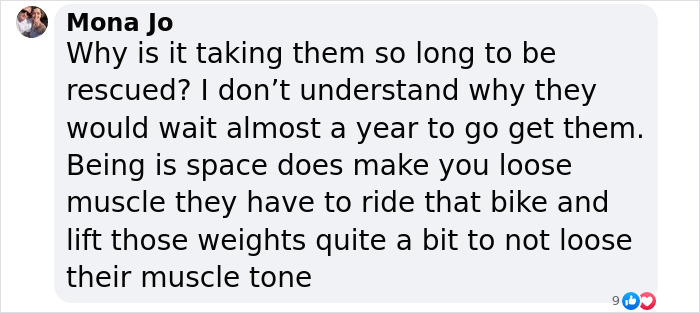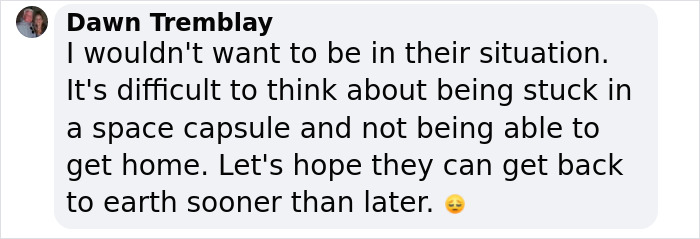A tale of survival has been unfolding miles away from earth aboard the International Space Station (ISS).
Nearly 250 miles above our planet, NASA astronauts Butch Wilmore, 61, and Sunita Williams, 59, are currently relying on ingenuity and soup made from recycled urine to endure their longer-than-expected stay.
Their mission was originally planned as an eight-day journey in June. However, things took an unexpected turn when the Boeing Starliner, meant to bring them home, suffered helium leaks and thruster malfunctions. It was deemed unsafe for them to make the return trip.
NASA astronauts Butch Wilmore, 61, and Sunita Williams, 59, are stranded aboard the ISS after technical failures with the Boeing Starliner
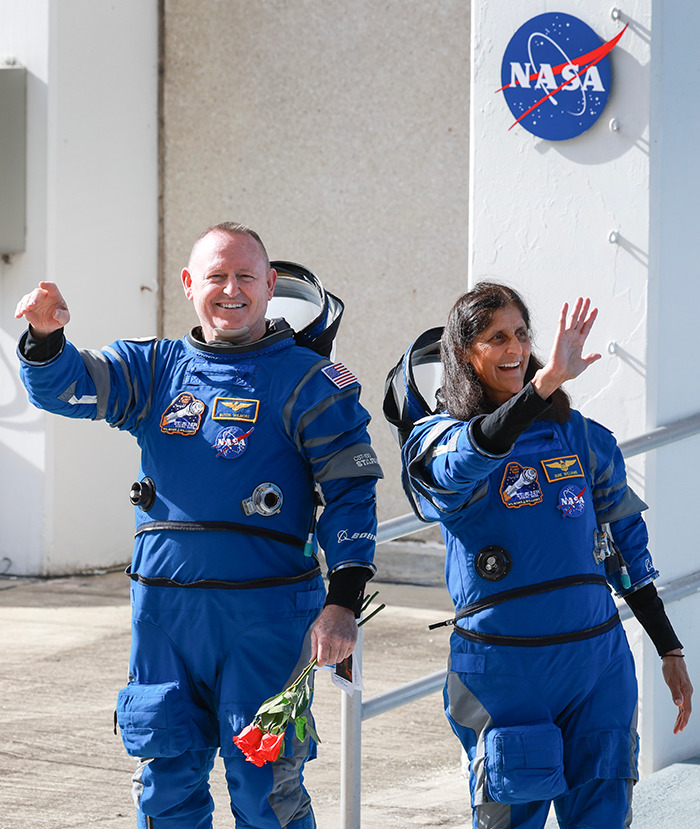
Now, the pair must remain aboard the ISS until February 2025, awaiting their rescue via a SpaceX Dragon craft.
The unplanned extension to their stay has made them rethink the usage of available resources as well.
Their meals over the last five months included pizza, roast chicken and shrimp cocktails. However, the menu includes very little fresh produce.
“There’s fresh fruit at first. But as the three months continues that goes away — and their fruits and vegetables are packaged or freeze-dried,” a specialist connected to the mission told the New York Post.
The astronauts’ menu also includes breakfast cereal with powdered milk, dehydrated casseroles and soups made with water recycled from the ISS’s 530-gallon fresh water tank.
The station has a system that ingeniously transforms the astronauts’ urine and sweat into drinkable water, ensuring minimal waste and maximum sustainability.
Originally on an eight-day mission in June, the NASA astronauts now find their stay stretched till February 2025
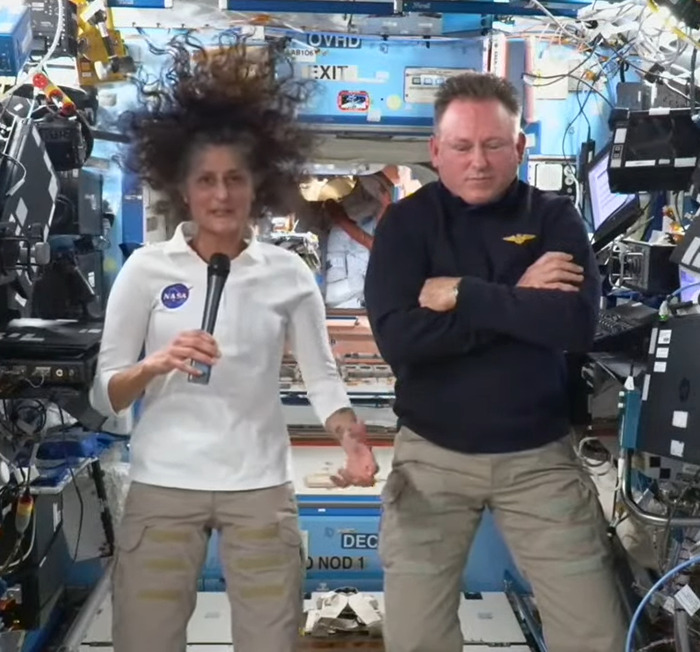
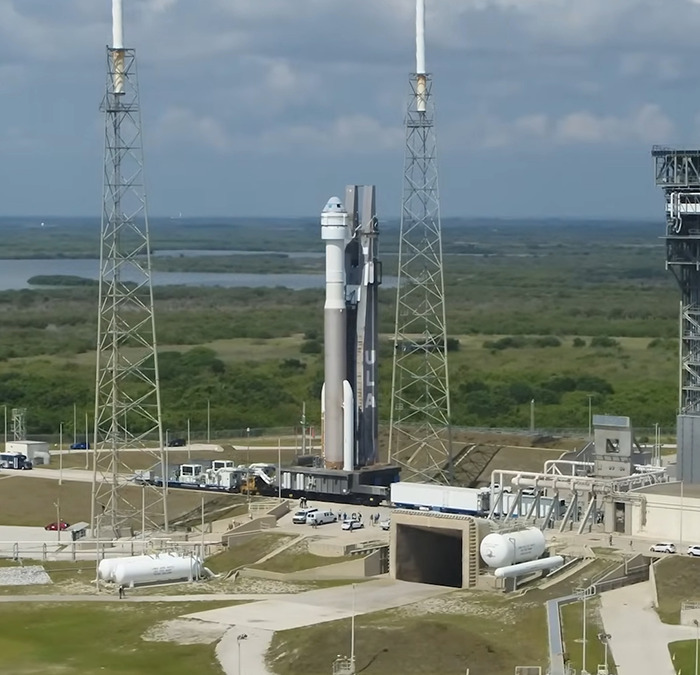
NASA is also carefully monitoring the astronauts’ health and nutrition. Each astronaut is allotted about 3.8 pounds of food daily. But concerns have recently arisen over Sunita and Butch’s health.
Dr. Vinay Gupta, a pulmonologist and veteran in Seattle, also claimed Sunita’s recent appearance was most likely a result of “total body weight loss.”
“What you’re seeing there in that picture is somebody that I think is experiencing the natural stresses of living at a very high altitude, even in a pressurized cabin, for extended periods,” Dr. Vinay told the Daily Mail earlier this month.
“Her cheeks appear a bit sunken – and usually it happens when you’ve had sort of total body weight loss,” the doctor continued. “I think what I can discern by her face and her cheeks being sunken in is that [she] has probably been at a significant [calorie] deficit for a while.”
Meals include freeze-dried casseroles, powdered milk cereal, and soups made with water recycled from their urine
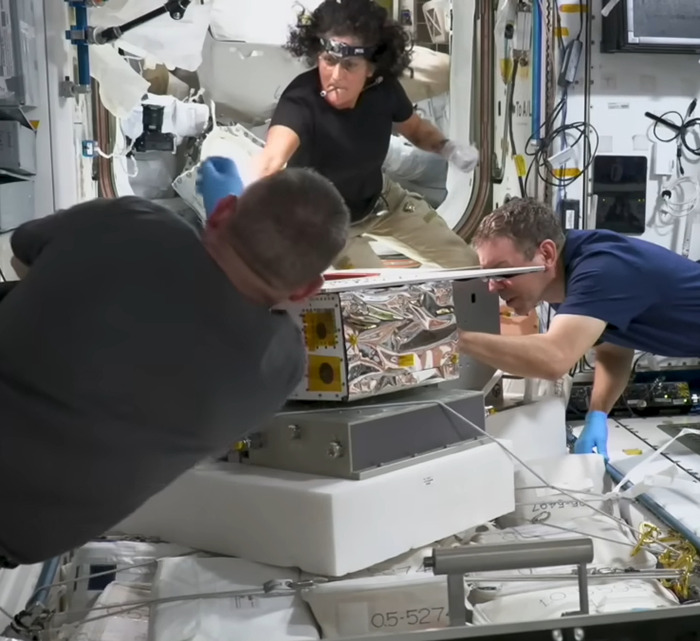
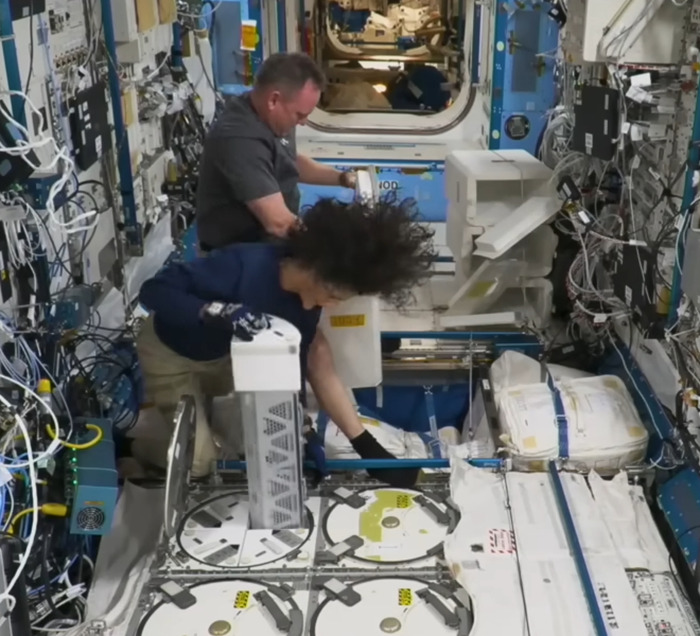
However, the stranded astronaut dispelled the rumors about her health and said the change in her appearance was due to “fluid shift.”
Sunita broke down the “fluid shift” phenomenon, explaining how microgravity redistributes fluids in the body, giving astronauts puffier heads as pressure increases up top. NASA reported that this affects half of all astronauts aboard the International Space Station.
Sunita also insisted she’s packed on muscle since her return to Earth was delayed. She also credited squats for her now-bigger thighs and glutes.
“My thighs are a little bit bigger, my butt is a little bit bigger,” she said. “We do a lot of squats.”
However, a NASA insider connected with the mission had something different to say about her health. He told the New York Post that the stranded astronaut has indeed “lost a lot of weight.”
Sunita’s recent appearance sparked rumors of health issues, with claims of significant weight loss

“The pounds have melted off her and she’s now skin and bones,” he added. “So it’s a priority to help her stabilize the weight loss and hopefully reverse it.”
Long missions in space can pose significant challenges to astronauts’ mental health, driven by isolation, confinement, monotony, and the physical separation from Earth.
“The people who did better reported doing more of things like really holding on to the positive, savouring good things. They tended to focus much less on the negatives, so they wouldn’t turn things over in their mind and try to fix it,” Joanne Bower, a sleep researcher at De Montfort University in Leicester, UK, told BBC about someone undertaking a long trip in space.
“If you’re in space and there’s nothing you can do about it, to some extent, minimizing it and putting it to the back of your mind might be the healthiest thing you can do,” she added.
The internet was both inspired and perplexed by the resilience and resourcefulness required aboard the ISS

